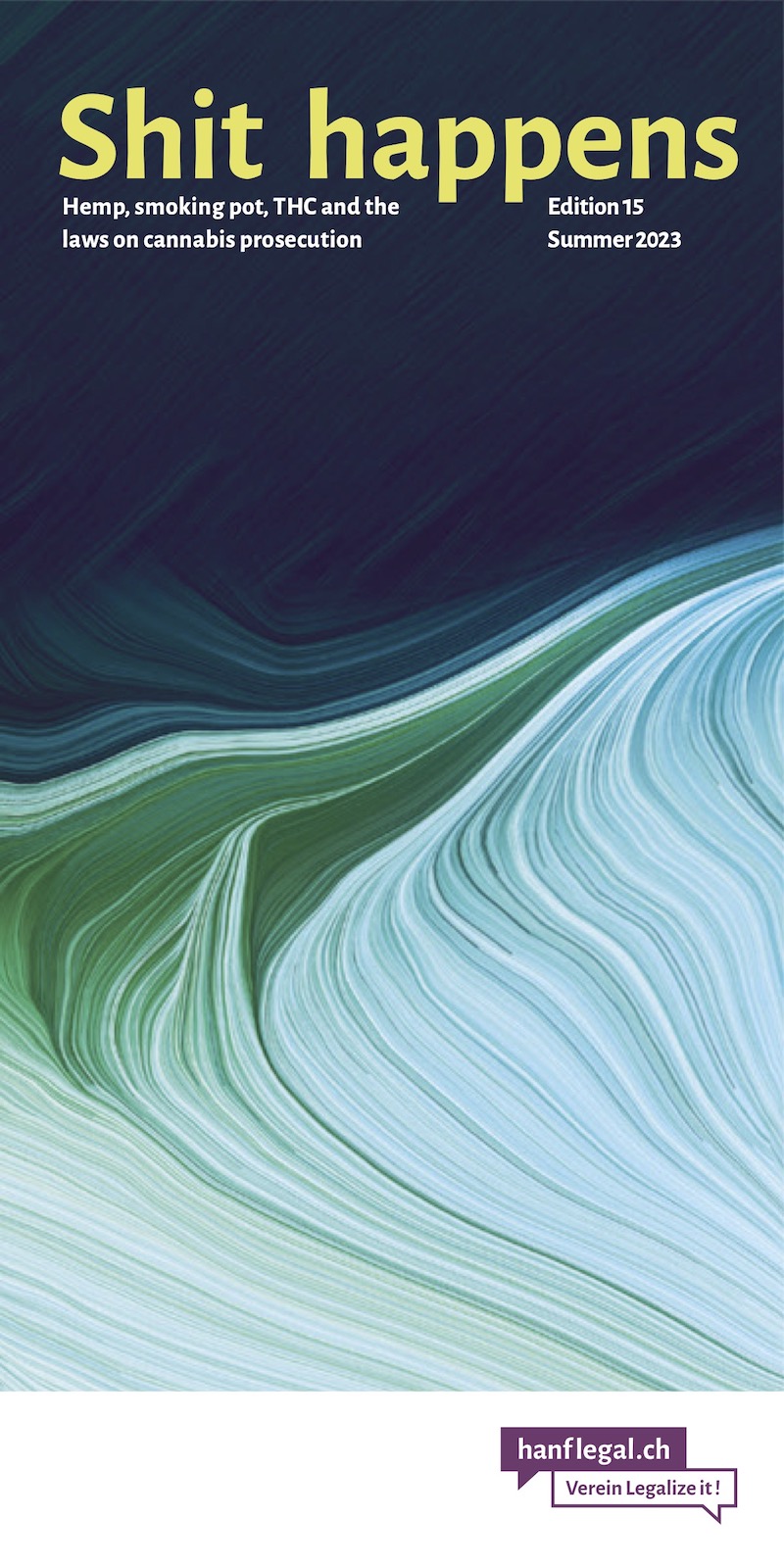- THC & Law:
Cannabis use and psychosis
In the discussions about cannabis legalization, opponents often reflexively argue that cannabis use increases or even triggers psychoses. However, most studies on this are simply inadequate. However, there are also numerous reports of people who use cannabis specifically to cope better with their mental disorders.
The effect of cannabis is individual, and, as is well known, there is no such thing as “the” cannabis, but rather a huge range of varieties and cultivars. In addition, dosage, frequency and type of consumption play a major role when it comes to the effect of cannabis products.
In the right combination, cannabinoids can even have an antipsychotic effect. The division into legal and illegal substances once again makes no sense when even legal substances are suspected of being able to intensify or even trigger psychoses.
What are psychoses?
Psychoses are severe mental disorders that are accompanied by a temporary and extensive loss of reference to reality. Instinctively, one now thinks of the oddball who talks to himself and/or insults others in public for no reason. However, the term psychosis is merely an umbrella term and includes many other mental illnesses that are not nearly as spectacular.
In the context of cannabis (use), however, the term is usually equated with experiencing a schizophrenic episode. In such a state, those affected lose touch with reality, thus experiencing delusions.
The unbroken belief in dubious studies
When proponents and opponents of cannabis legalization meet, it usually doesn't take long for the opponents to start blasting each other with the results of various studies.
The fact is, however, that at least at present there is probably no study that can conclusively explain the question of the benefits and dangers of cannabis use. It is in the nature of things that these studies are almost without exception retrospective. Thus, the current condition of patients is considered and then retrospectively causes for the triggering of a psychosis are searched for.
Of course, this only works if the previous history can also be analyzed with measurable criteria - for example, with medical records or reports of concomitant diseases. With regard to cannabis use, however, researchers are mostly dependent on the subjects' self-assessment, i.e., not on criteria that can be precisely measured empirically, but on subjective perceptions.
This is problematic insofar as self-reports are often embellished afterwards. And even if the test persons are sincere, there is another problem: The cannabis consumed was often acquired on the black market, so no statement can be made retrospectively about its quality. The probability is quite high that the consumed cannabis was contaminated by residues or extenders, which in turn can falsify the result. The quality and the content of the active ingredient is usually not checked by the research, and since it is about cannabis products from the black market, the quality security is not given - nobody compares wheat beer with adulterated vodka…
The question whether foreign substances or cannabis are responsible for the current condition of the test person can therefore no longer be answered, because a joint contaminated with lead, for example, can also cause fatigue or even damage the brain.
Chicken or egg: the crux of causality
Affected people usually live with mental illness for a long time before they seek professional help or are persuaded to do so by their environment. The diagnosis then often only gives indications of the bad experiences and events of the past. As soon as cannabis use comes into play, it is often hastily identified as the cause, although in most cases this cannot be supported by hard facts (such as empirical data, see above).
After all, affected persons were often already exposed to psychological trauma or social stigmas before the first joint, but outsiders are usually not aware of this. There are also clear medical conditions where cannabis use can even alleviate symptoms. This is the case, for example, with ADHD (Attention Deficit Hyperactivity Disorder) or Tourette's syndrome - both illnesses for which those affected are even prescribed cannabis as medication in certain countries.
The use of cannabis can therefore also be considered under the aspect of self-medication, whereby the causality is reversed: Cannabis use is then a symptom and no longer the cause. For which clinical pictures and under which conditions this applies, however, still has to be studied in detail and - like many other things in the field of cannabis use - has to be considered as an individual matter.
Not all cannabis is created equal
Cannabis products (weed/marijuana and hashish) can have a wide range of effects depending on the variety and cultivation as well as the type and amount of active ingredients in the original plant. While highly potent products with a lot of THC (tetrahydrocannabinol) have psychotic effects, varieties rich in CBD (cannabidiol) show antipsychotic effects. This is probably part of the reason why many cannabis lovers appreciate good Moroccan or Afghan hashish: The plants traditionally grown in these fields are - in addition to THC - also rich in CBD, and their effects are often perceived as more pleasant than other, less CBD-rich varieties.
Why always just cannabis?
The first thing we have to realize is that psychotropic substances can, by definition, alter consciousness. Consumers want to fall into different thought patterns, change their relationship to reality or even trigger hallucinations.
It does not matter whether it is LSD, cannabis or alcohol. This also raises the question of whether only cannabis is suspected of increasing the risk of psychosis. A look at the literature shows that there are also theories about alcohol-related psychoses - even the use of tobacco is suspected of increasing the risk of psychosis.
In the debates, however, this fact is suppressed, perhaps because alcohol and tobacco are legal, although this distinction rarely makes sense. Nearly 30% of the Swiss population aged 15 and older smoke tobacco and about 13% consume alcohol daily. It is likely that mentally ill people who are suspected of having a psychosis due to cannabis also smoke or drink alcohol daily.
Often it is a combination of several factors that can trigger an illness - to consider only one circumstance or one substance as the cause is oversimplified and simply untrustworthy. The human being and thus also the subject of health is so complex that numerous factors must always be taken into account for a holistic assessment - otherwise one runs the risk of prematurely blaming the wrong causes for illnesses and thus ultimately making a cure more difficult or even impossible.
Regulation is necessary
According to figures from the addiction monitoring, one third of all people living in Switzerland have already used cannabis. So despite the ban, hundreds of thousands of people consume cannabis without ever having a problem with it. Of course, every victim is one too many - but it is hypocritical to discriminate against and criminalize hundreds of thousands of cannabis users on the basis of an assumption that is scientifically shaky.
Addiction experts agree that prohibition has failed and that cannabis regulation is urgently needed.
The orders of magnitude in comparison
In the “National Strategy on Addiction 2017-2024”, the Confederation has published on page 35 a compilation according to substance-related psychiatric diagnoses (intoxications, harmful use, dependence syndrome, withdrawal syndrome, psychotic disorder). Accordingly, in 2013, 15,519 such diagnoses were for alcohol, 1,807 for opioids, 1,702 for other drugs, 1,700 for multiple substance use, and 800 for cannabinoids (of which 135 were psychotic disorders).
Support our work with a donation:
Bank transfer
Account number (IBAN):
CH02 0900 0000 8709 1354 3
Full account details
Or scan this QR code with your eBanking App (ZKB, Revolut, Postfinance, …):

Or open/share the QR code as PDF file with your eBanking App.
Credit card
Donate via credit card
Verein Legalize it!
Quellenstrasse 25
8005 Zürich
Threema ID 7NH65RBY
Don’t miss anything! Follow us on social media:
